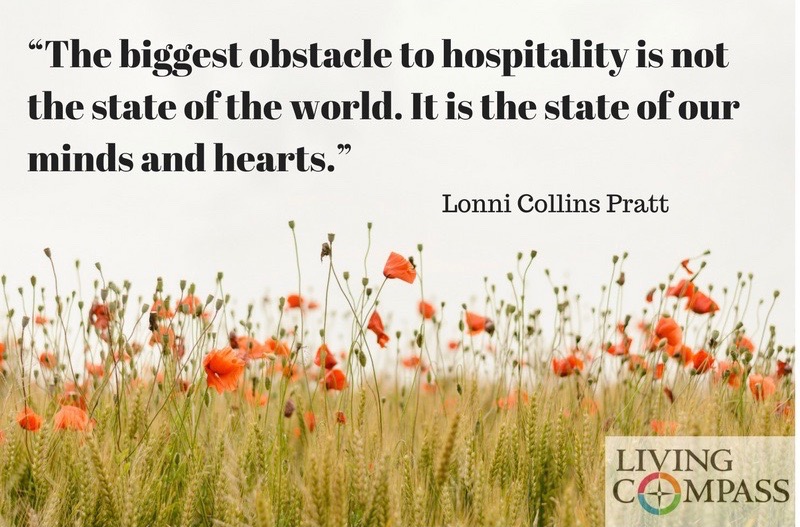This week I am sharing some material I wrote for the Living Compass booklet of daily readings entitled Living Well Through Lent 2018. The theme of this booklets is “Loving With All Your Heart, Soul, Strength, and Mind.”
* * * * * * * * * * *
It seems that frequently when the topic of love is discussed, the discussion often turns to the idea of falling in love, the great wonder that exists when love is new. As a culture, we primarily focus on and celebrate the “falling in love” stage of a relationship, be it the love of a new couple, the birth of a new child, or the formation of a new friendship. If a person knew nothing else about love except what the media portrays, one would think that falling in love must be what is most important. Anyone who has been in love, of course, knows differently.
The head over heals rush of falling in love, as powerful and wonderful as it is, is transitory. So given the fact that falling in love is such a small phase of any relationship, it seems wise to reflect on the importance of what comes after falling in love, and that is learning to stand in love. Standing in love is an extension of the idea that love is not only a feeling, but is also a decision. Regardless of what we may or may not be feeling, we can decide to stand in love in any relationship and to work with that person long after the feelings of falling love have diminished.
When a friend or family member cares for a chronically ill loved one, they are standing in love. When a person faces down their fear and stands up to racism, that person is standing in love. When a person refuses to give up on someone they love who is struggling with an addiction or other adversity, they are standing in love.
Few things reflect the state of our own spiritual and emotional wellness than our capacity to love well, and so it is wise to think about this as it applies to your own life from time to time. I know that when I am in an internal state of worry and negativity, my capacity to love others is greatly diminished. When I am in a place of internal peace and calm, I have a much greater capacity to both feel and express love.
I recently facilitated a Parent Wellness Circle, a six-week gathering of parents who are meeting to become more intentional about their parenting. In one discussion the parents agreed that almost every time they had been harsh with their child, it was more of a reflection of what was going on inside of them, rather than what their child had been doing or not doing, that triggered their reaction. When they were not in a good place themselves, it was hard to be a patient and loving parent. Lonni Collins Pratt says it best in her book Benedict’s Way: Making Room for Love, “The biggest obstacle to hospitality is not the state of the world. It is the state of our minds and hearts.”
Do you see a connection between your own emotional and spiritual wellness and your capacity to love others? Do you see any “obstacles to hospitality” in your own mind or heart? If so, what might you do to remove them?
SUBSCRIBE NOW TO WEEKLY WORDS OF WELLNESS:
Click the button below to signup for the e-mail version of Weekly Words of Wellness. This weekly article can be shared with your community electronically and/or used for group discussion.
You can unsubscribe at any time.

